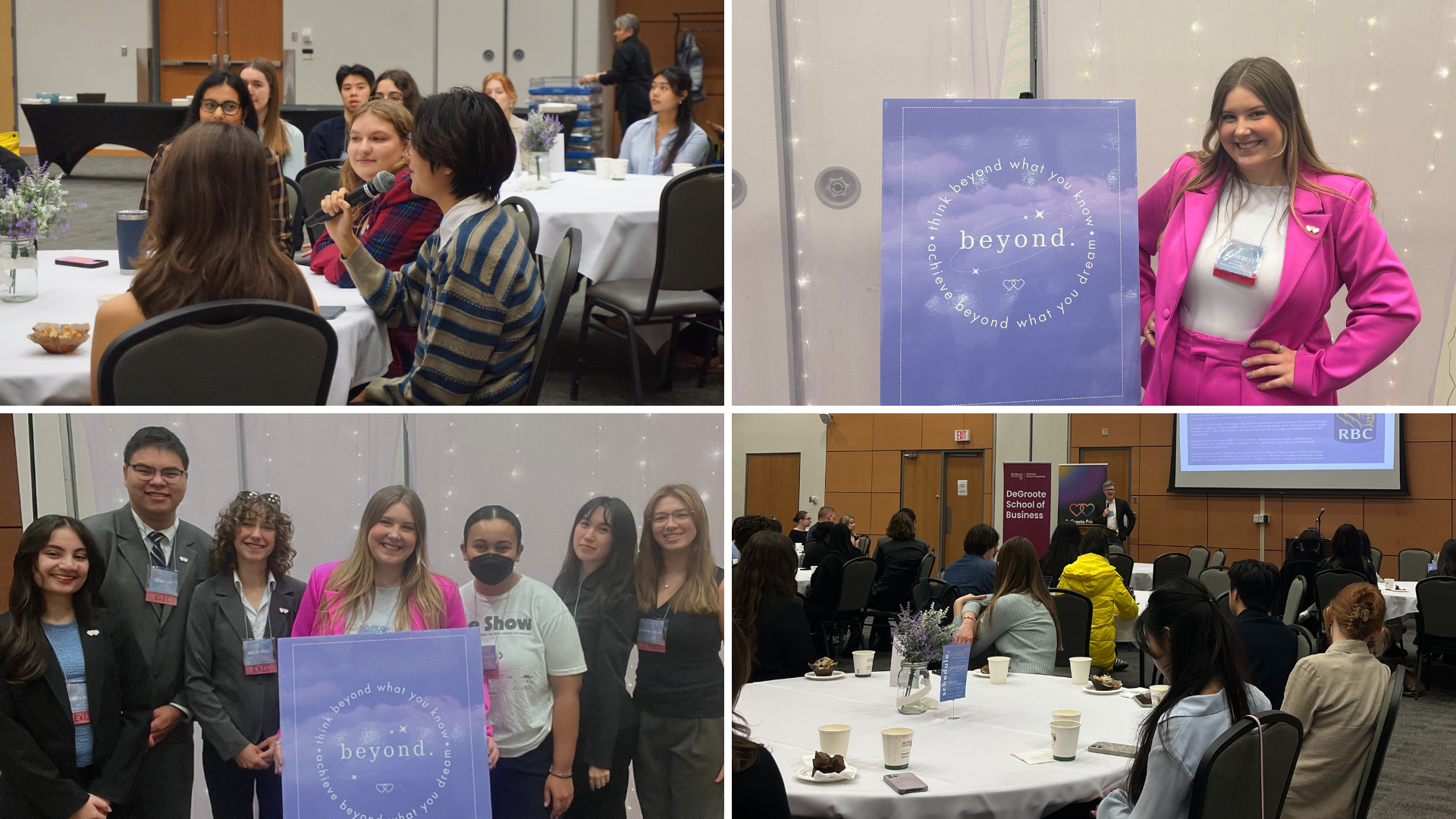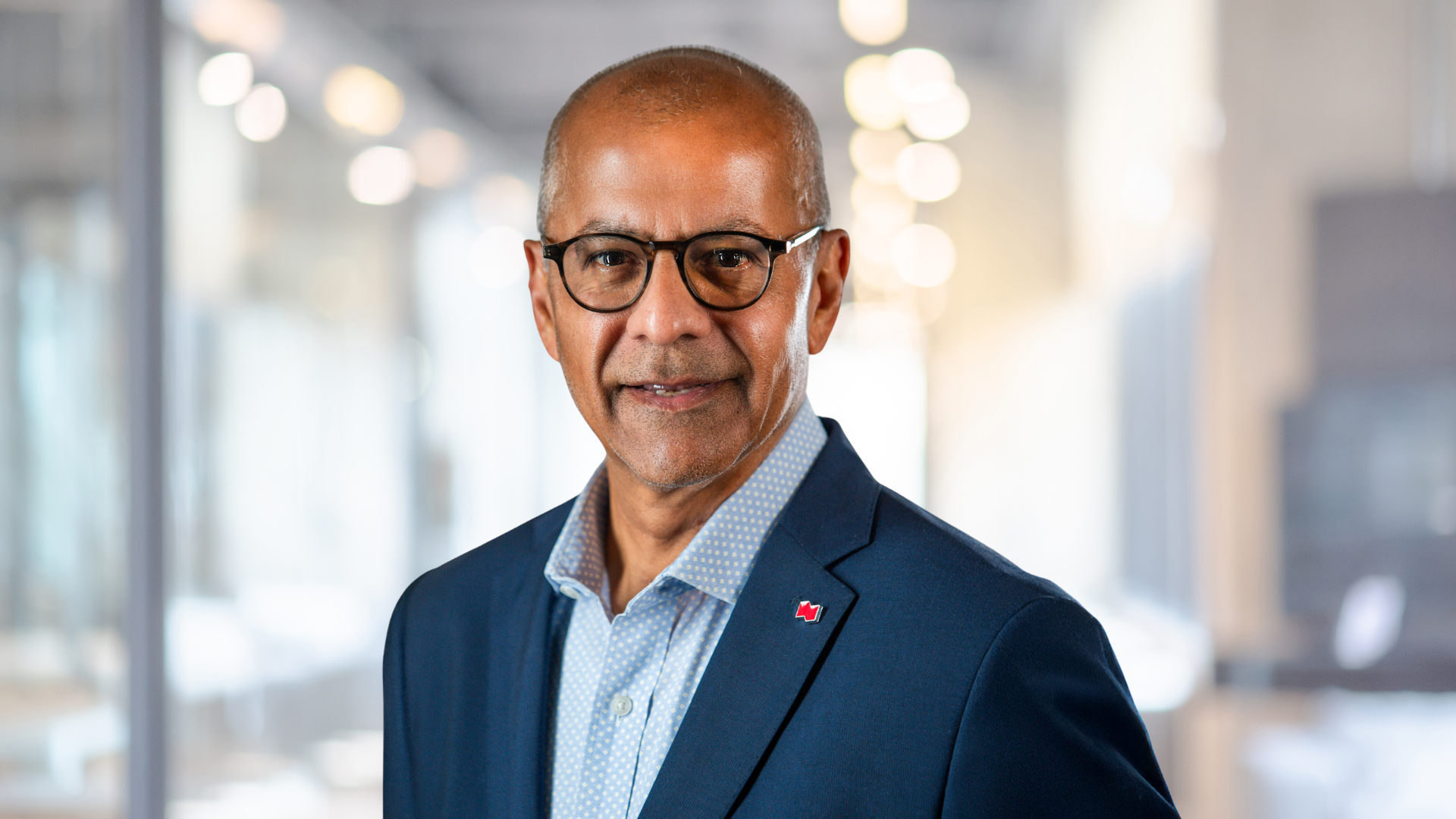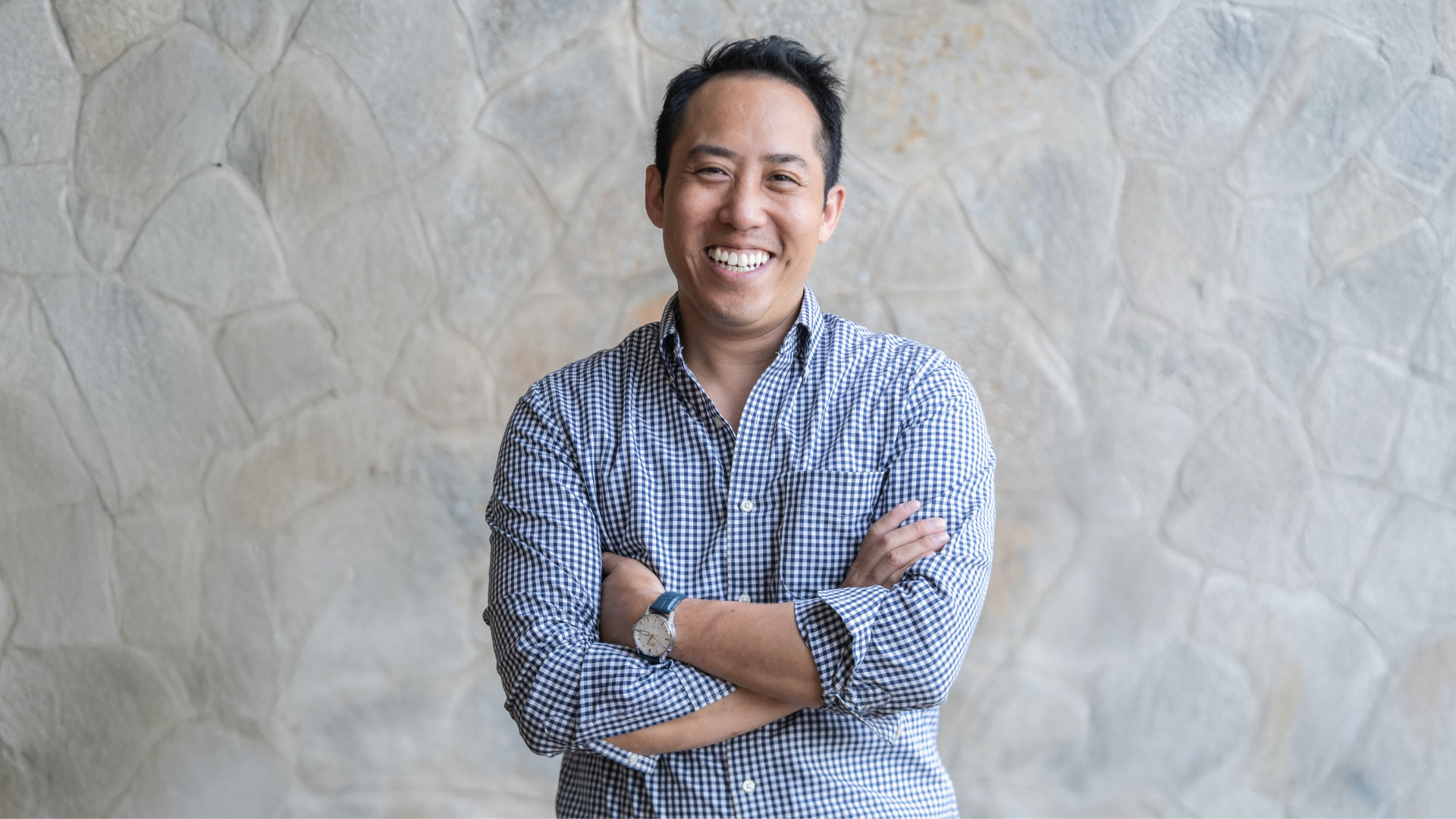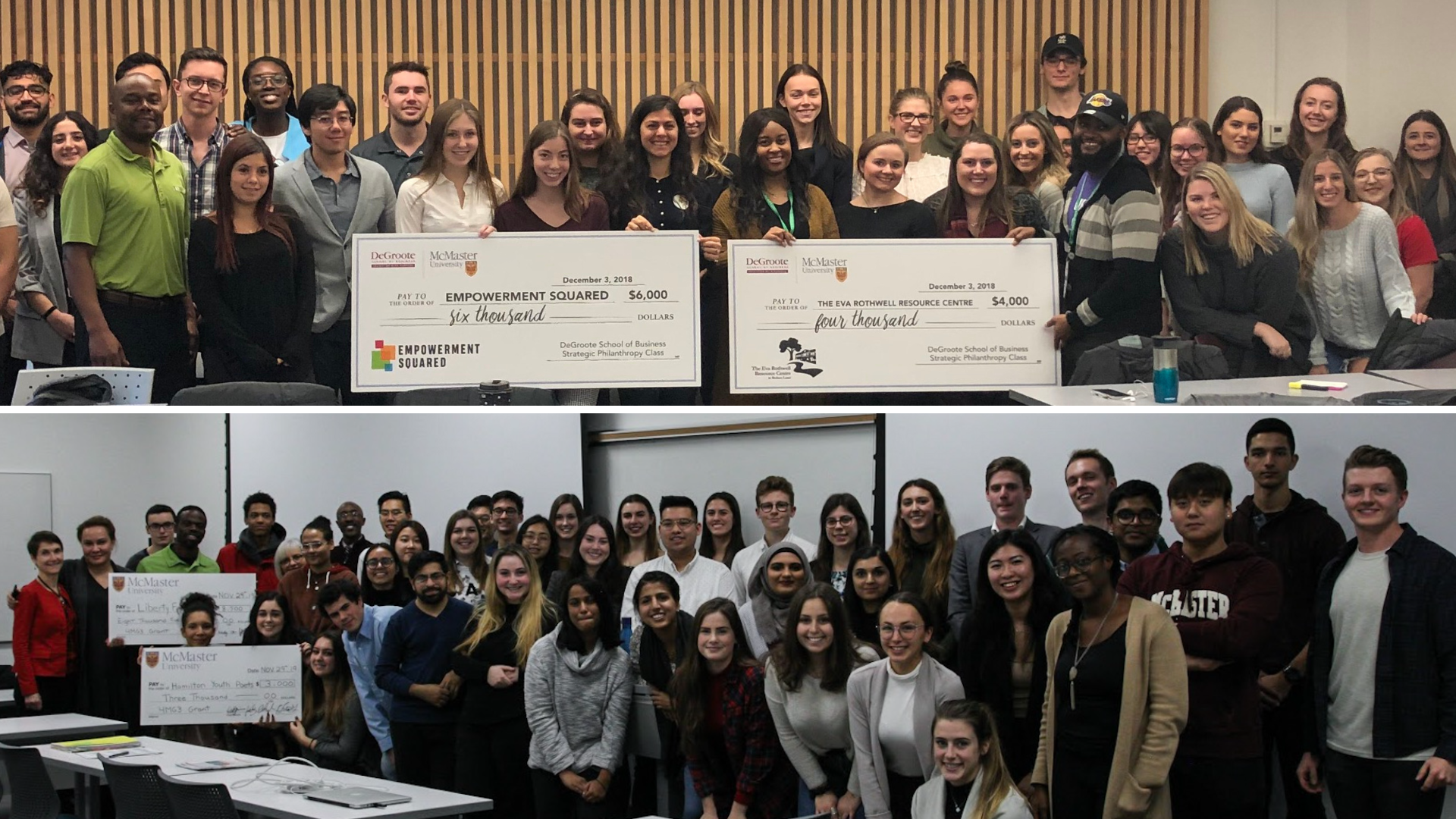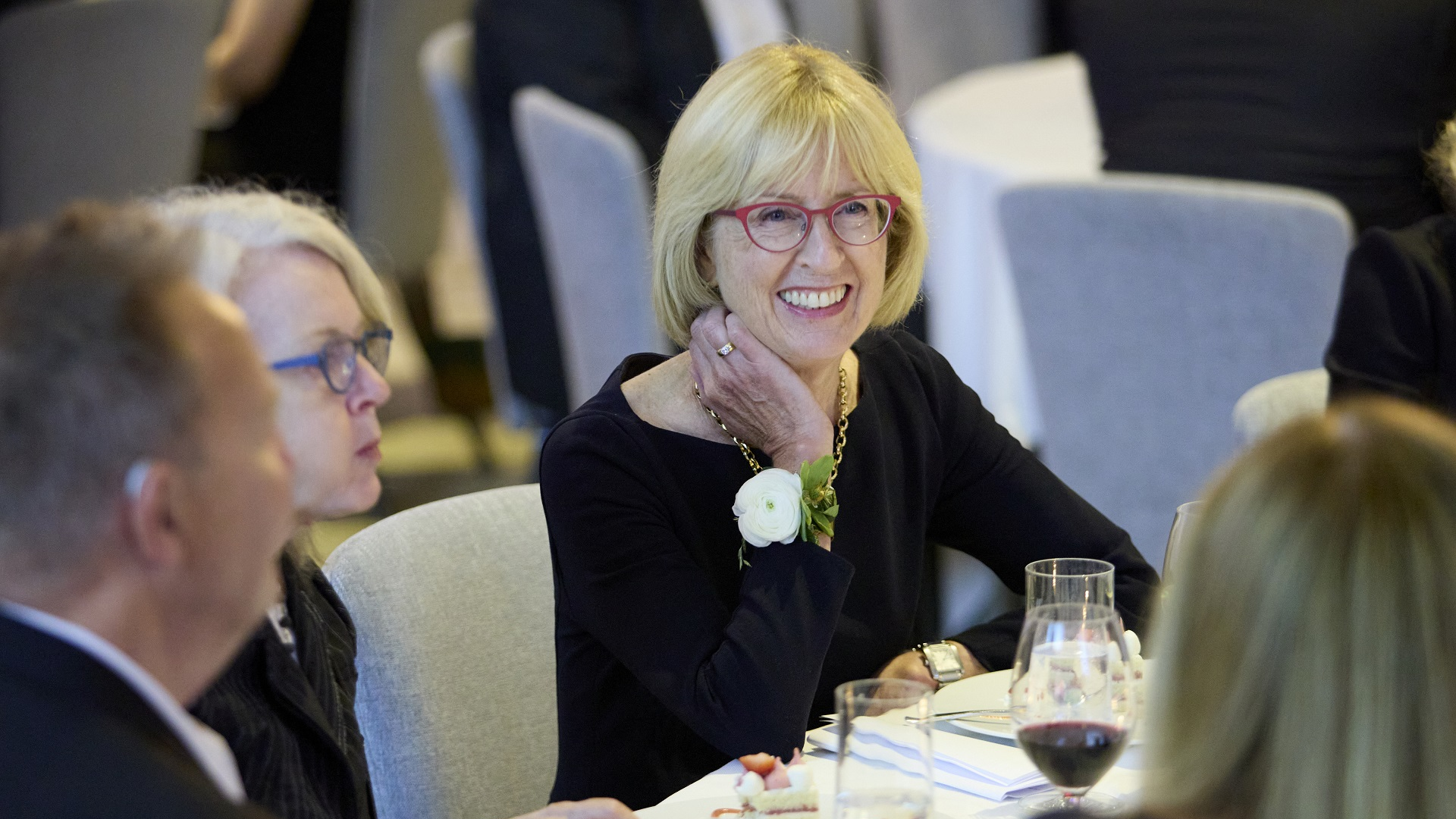ALUMNI STRATEGIC PLAN | ENGAGING COMMUNITIES STRATEGIC PLAN | INCLUSIVE EXCELLENCE
Forging Her Own Path in the Boardroom: Early Adopter Anju Virmani
March 31, 2023 ·
Contributed by: Joanna Williams, Marketing and Communications Strategist
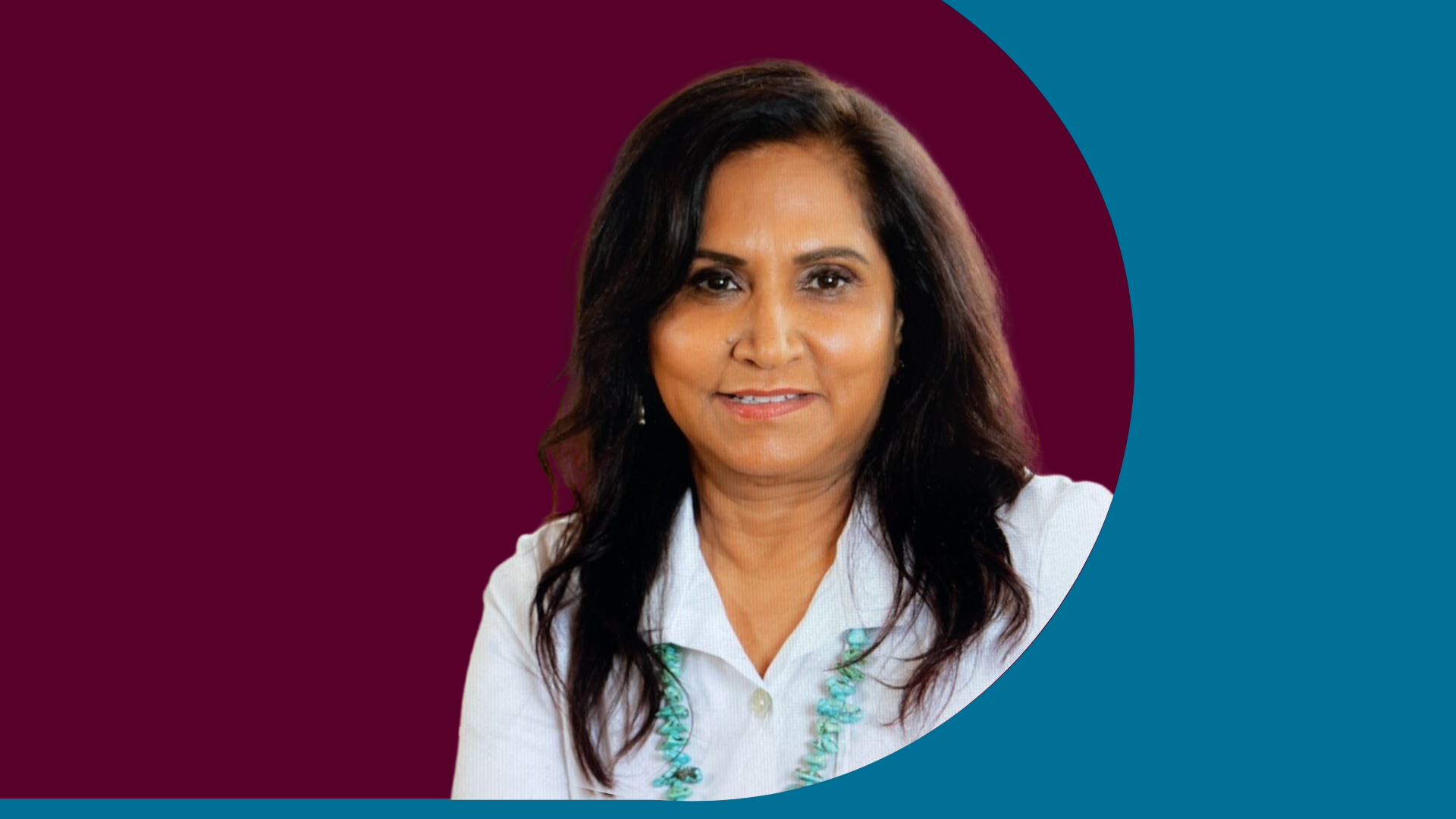
For over 20 years, Anju Virmani (TDC ‘05) has been an adviser and consultant in Information Technology. An early adopter, she used technology as an avenue to secure her own professional independence. As one of few women in the industry at the time, she entered the tech field when the industry was dominated by men. Virmani was also among the early cohorts pursuing governance education at The Directors College Chartered Director program which began nearly 20 years ago. Now retired from her corporate job as Chief Information Officer at Cargojet Airways, Virmani serves on several boards, mentors young entrepreneurs and shares her expertise through speaking engagements.
We sat down with Virmani to talk about her career as a woman in an emerging tech sector transitioning into board roles, including the barriers and challenges she faced along the way, and what she sees as the top challenges facing boards in the current environment.
What inspired you to enter the field of information technology?
I immigrated to Canada at a very young age of 20 years old. I landed in this country with the qualifications of being a teacher for special needs kids, but I realized that I needed to have financial independence to achieve what my dream of coming to Canada was. And I realized very quickly that I was going to have to do it myself.
So, I looked for jobs and it turned out the only jobs that paid well were in technology. I cannot say that my entry into tech was for altruistic or passion – it was a passion to be independent, self sufficient, and I could see that technology could lead me there.
What are some of the barriers to women entering the tech industry?
In hindsight, I realize that the barriers to entry in tech or any other field were mostly self-imposed or imposed by other people. I connected with a male mentor who was an engineer and asked his opinion on my entry into programming, or coding as it was known in those days, and I was subtly told I wouldn’t be able to handle it because it requires a lot of brains.
Of course, I ignored the advice. I went into a part time program in New York where I learned how to code. There were two women in the program and the rest were all males. But it turned out that towards the end, the two women were teaching the men in the class about logic and following process. Both of us did really well and that was my first and true entry into a better paying job in technology.
How did you navigate a traditionally male role?
What worked for me was being ahead of the game, and looking at what the next technology was so I could be one of the first few entrants in the field.
I did my research. This was in the 80s with no internet, so it was about reading books, it was about reading journals, it was about listening and seeing what’s the next technology that’s coming up.
The other thing that I did was I invested in myself. When I found out what the next technology was, I didn’t sit and wait for an employer to pay for my education. I took my hard-earned money, which was very scarce at the time, and I went back to continue learning. Being an early adopter is my thing.
I believe that a woman can do whatever she wants to do. It’s the men who have to adapt to having women working alongside them. I never thought that it was my problem if I was in a male dominated field. I had to know my subject matter and speak up. I always thought it’s the men who need more support and how to navigate an environment where women are entering their field.
One last thing about navigating through the male dominated world is to speak up. A lot of us do not speak up because we feel people will criticize us or will not buy into our proposal. But it’s really important that if you have something to say, speak up. Nobody is going to invite you to speak up, so you have to make yourself heard. You have to raise your hand and if you don’t get heard, stomp your feet if you have to say, ‘I have a valuable contribution to make’.
What are some of the challenges you had to overcome?
Some of the challenges that I faced were peers, particularly males, always underestimating my value – which always worked in my favour. The only way to overcome that was to increase my knowledge.
Knowledge is power. I was always reading technical manuals. I learned all the buzzwords, and sometimes I oversold myself, because I had the confidence to deliver. I also had a healthy dose of fear. And I think you hear about that a lot these days, women who are 70 per cent qualified will not apply for a job that they want. And men with 30 per cent of the qualifications needed, go ahead and boldly apply for that job.
How to overcome challenges is to prepare yourself, put your best foot forward, have confidence, and be the fearless girl that you are.
Being a leader demands more than knowledge. It involves emotional quotient, being collaborative and empathetic and creating a culture of trust.
Over the course of your career, you have seen immense change in the evolution of technology. What do you think has been the most revolutionary technology?
I started my career in technology in the early 80s. It was a world of IBM punch cards and early online language which I remember dialing through a phone and a modem to connect into the school computer.
I think the biggest change was the world wide web which changed everything for every organization and for people and their personal lives to the point that now 5G is the newest technology and we are totally connected.
The good and bad if it is that we are so connected that we don’t enjoy our disconnect time. I wish we could go back to more of a work-life balance. Because we are so connected, we feel the need to be on all the time. Technology has changed our behavior and changed our expectations and it will continue to evolve. Transformation is a journey.
How do you keep current with the latest innovations and rapid changes in technology?
I keep current with the evolving and emerging technologies as I did before; just the tools of doing that are different.
I love mentoring young people and that keeps me in touch with what’s happening right now. I look at it as a learning opportunity, for me and the mentee.
Are there any women figures in your life, past or present, who inspire you?
When I was younger, I always said I didn’t want to turn into my mother. But when I look back at her life and legacy, I had strong role models in my life.
I think I’ve been mostly influenced by my mother and my grandmother because they were hard working women ahead of their times and believed in education. That’s what my mother gave me was an education – a gift that keeps on giving and it’s not something you can return and it’s not something that’s going to disappear. It’s something you keep for life and that’s why I support women in STEM education. I feel education is a great equalizer.
What are the top three skills needed by today’s digital business leaders?
Every leader today is a digital business leader.
You’re passionate about security. What are the most common security flaws in most businesses?
When it comes to technology, you realize the technology brings forth rewards and risk. More digital your organization, the higher your risk. But the risk-reward ratio and your ability to mitigate those risks became very critical for every organization and every country.
The possibility of cyber attacks and denial of services, business continuity, recovering from a data breach, data governance are all part of an Enterprise Risk Management profile. Its not “IF” you will get hacked, its “WHEN”. And when you do, what’s your playbook and how do you recover from it and keep business running?
What can business do to increase security?
Each organization has to find its perfect balance – how much risk they’re willing to accept and how much money they are willing to pay. There’s a cost to reducing the risk and you reduce and mitigate your risk by having cyber insurance, sharing your risk with third parties and/or by putting up locks on all your servers.
But then there’s always someone who forgets to lock the door when they leave. And so your biggest vulnerability is your people. Security training is extremely important. Everybody plays a role in security. It’s not the security department, it has to be in the DNA of the organization. It’s the human factor that needs to be constantly trained and ahead of the hackers.
Digital transformation is a journey. The journey is agile and changing, and so are the risks and the means with which organizations will manage them.
How valuable is data in today’s business world?
Data is the new gold, or the new oil, because data is priceless.
It’s one of your biggest assets, yet it’s never on your balance sheet.
It’s a very critical way of thinking about security and protecting what needs to be protected from a privacy perspective, from a compliance perspective, and that right now is not just our physical assets but our digital assets and we need to think in those terms.
In the new corporate world of governance and sustainability and environment, the reporting of data becomes really critical. It’s using our data and our security operations in a way that is meaningful and that is sustainable and safe and secure and protects the privacy of the people.
So these are questions that are still being answered by organizations and that’s why I always say digital transformation is a journey and you are always on the move.
I am on my journey of transitioning from the C-Suite to the oversight role of being the best board member in performance of my fiduciary responsibility. For me that journey started with my education at The Directors College more than 20 years ago.
The Directors College has been equipping directors of public and private companies, not-for-profit and crown corporations with the practical tools, knowledge and credentials to make a positive and immediate impact in the boardroom. In 2023, The Directors College celebrates 20 years as the gold standard in governance education.

